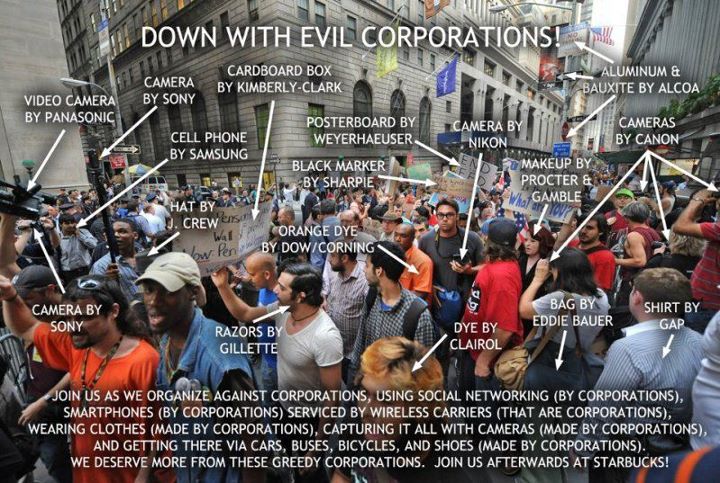This is one of the best articles I have seen that "explains" things in an understandable format.
http://www.businessinsider.com/what-...t-2011-10?op=1
http://www.businessinsider.com/what-...t-2011-10?op=1
The "Occupy Wall Street" protests are gaining momentum, having spread from a small park in New York to marches to other cities across the country.
So far, the protests seem fueled by a collective sense that things in our economy are not fair or right. But the protesters have not done a good job of focusing their complaints—and thus have been skewered as malcontents who don't know what they stand for or want.
(An early list of "grievances" included some legitimate beefs, but was otherwise just a vague attack on "corporations." Given that these are the same corporations that employ more than 100 million Americans and make the products we all use every day, this broadside did not resonate with most Americans).
So, what are the protesters so upset about, really?
Do they have legitimate gripes?
To answer the latter question first, yes, they have very legitimate gripes.
And if America cannot figure out a way to address these gripes, the country will likely become increasingly "de-stabilized," as sociologists might say. And in that scenario, the current protests will likely be only the beginning.
The problem in a nutshell is this: Inequality in this country has hit a level that has been seen only once in the nation's history—at the end of the 1920s--and unemployment has reached a level that has been seen only once since the Great Depression. And corporate profits are at a record high.
In other words, in the never-ending tug-of-war between "labor" and "capital," there has rarely—if ever—been a time when "capital" was so clearly winning.
Let's start with the obvious: Unemployment. Three years after the financial crisis, the unemployment rate is still at the highest level since the Great Depression (except for a brief blip in the early 1980s)
Image: St. Louis Fed
So far, the protests seem fueled by a collective sense that things in our economy are not fair or right. But the protesters have not done a good job of focusing their complaints—and thus have been skewered as malcontents who don't know what they stand for or want.
(An early list of "grievances" included some legitimate beefs, but was otherwise just a vague attack on "corporations." Given that these are the same corporations that employ more than 100 million Americans and make the products we all use every day, this broadside did not resonate with most Americans).
So, what are the protesters so upset about, really?
Do they have legitimate gripes?
To answer the latter question first, yes, they have very legitimate gripes.
And if America cannot figure out a way to address these gripes, the country will likely become increasingly "de-stabilized," as sociologists might say. And in that scenario, the current protests will likely be only the beginning.
The problem in a nutshell is this: Inequality in this country has hit a level that has been seen only once in the nation's history—at the end of the 1920s--and unemployment has reached a level that has been seen only once since the Great Depression. And corporate profits are at a record high.
In other words, in the never-ending tug-of-war between "labor" and "capital," there has rarely—if ever—been a time when "capital" was so clearly winning.
Let's start with the obvious: Unemployment. Three years after the financial crisis, the unemployment rate is still at the highest level since the Great Depression (except for a brief blip in the early 1980s)
Image: St. Louis Fed





Comment